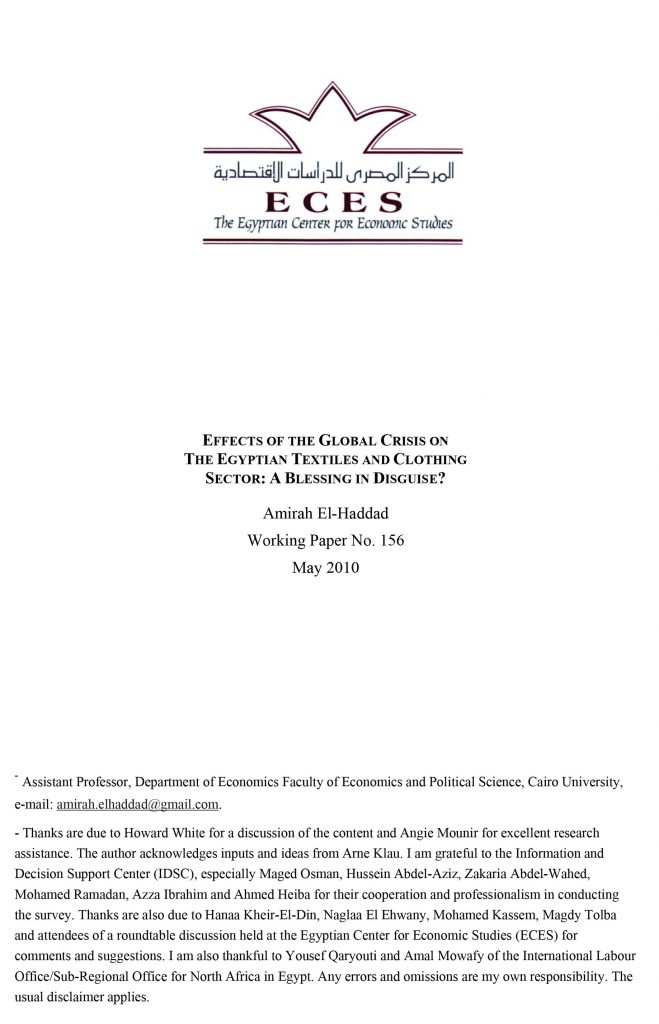Abstract:
The textile and clothing (TC) sector has not escaped the slowdown in the Egyptian economy in response to the crisis. But this sector has been in decline since 2001 in response to a changing global environment. Exports, which have been surviving on account of the politically-motivated Qualifying Industrial Zones (QIZ) and Euro-Mediterranean Partnership agreements, have been hit hard by the crisis. Domestic sales are in decline as a result of liberalization, and non-QIZ exporter—unprotected by the agreement—have been turning to the domestic market in competition with non-exporters. If domestic sales continue to decline at this rate, without being offset by growth in exports, the industry will continue to decline. To deal with the crisis, short-run mitigation policies can be considered such as ensuring banks make credit available, and paying social insurance for workers in distressed firms. But the sector is suffering from inherent structural problems resulting in high production and transactions costs. In other words, the crisis has exacerbated the shrinkage of an already struggling industry, so a longer run strategy is needed beyond the crisis response, comprising moving up the clothing industry value chain, conditional export incentives, skills upgrading and undergoing comprehensive institutional reform.

